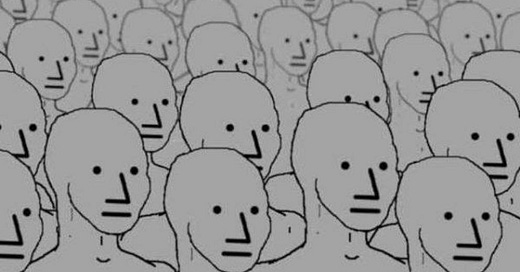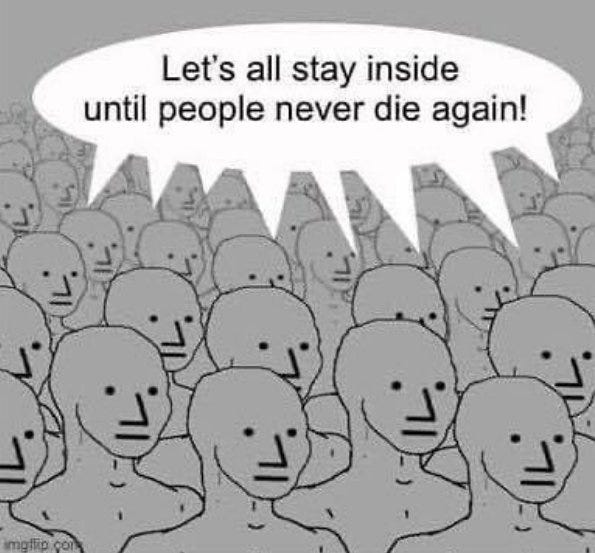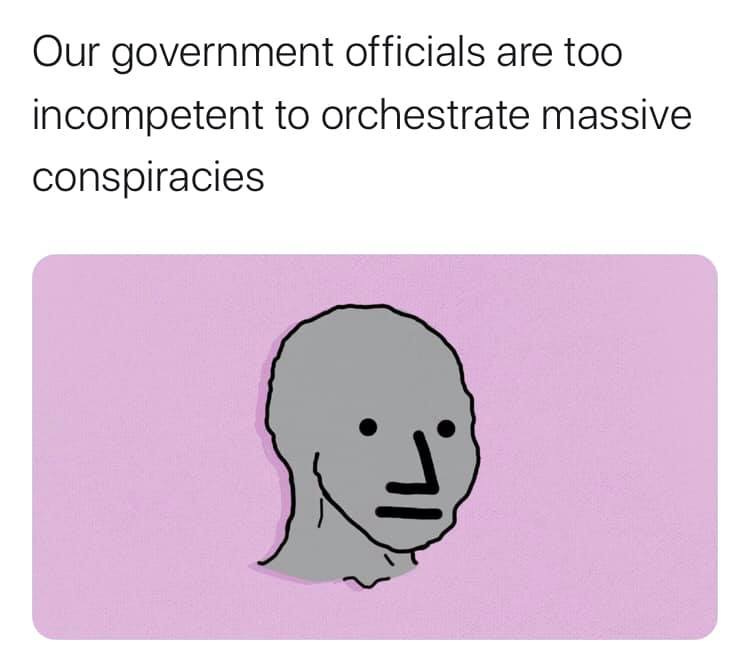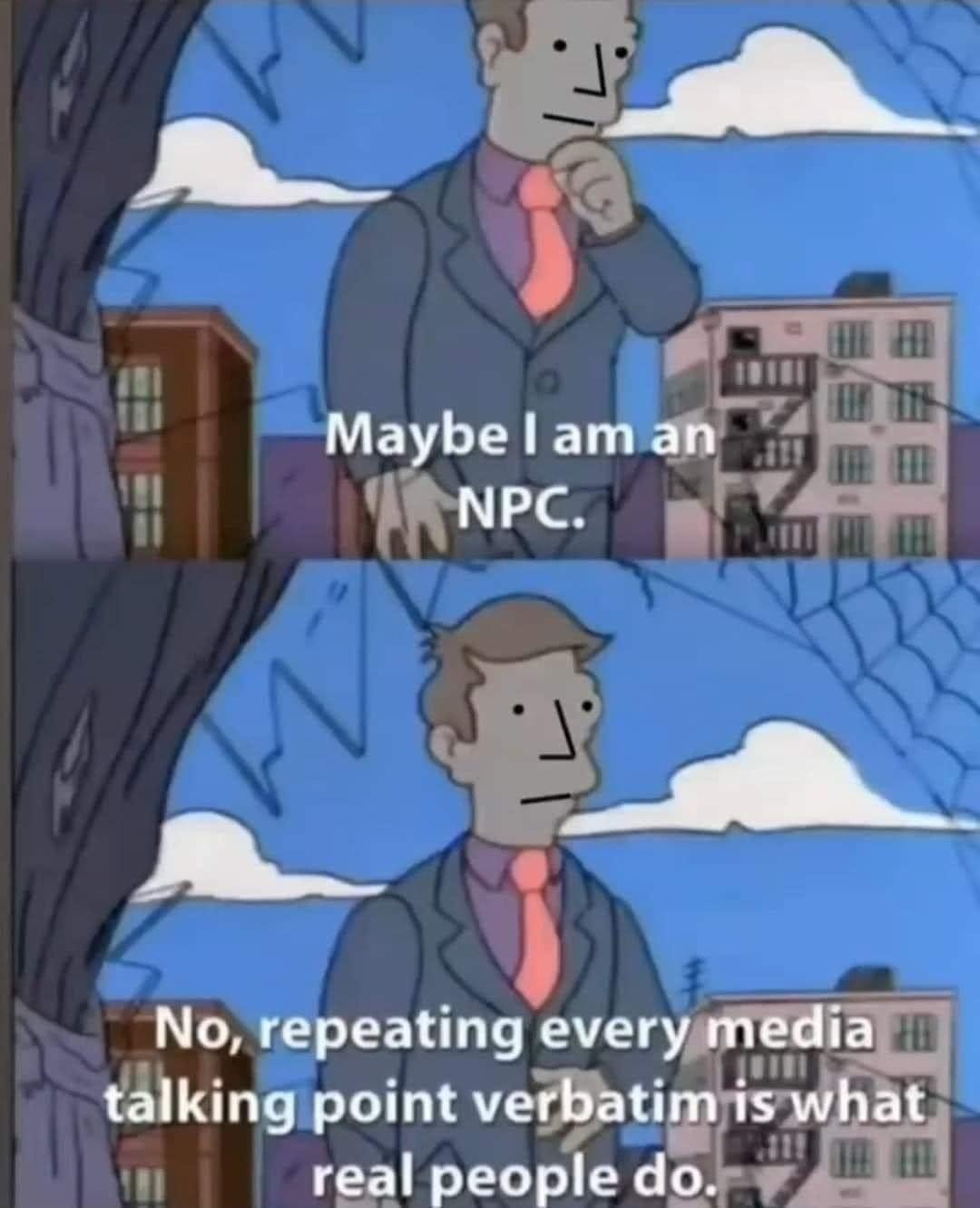My article What is it that wakes people up? explored various reasons why people may come to appraise more critically the actions of their government and media. In that analysis I omitted the following subject as it warrants the independent consideration that follows.
In March 2020, (appropriately enough), a subject was raised in the public consciousness that has interested psychologists since at least the 1930s. A tweet was posted addressing the suggestion that some people have an internal monologue and others do not. This has been researched by psychology professor Russell Hurlburt who estimates that “30 to 50 percent of people have an inner monologue narrating their thoughts throughout the day."
By this estimate up to 70% of people have no inner monologue.
Hurlburt explains:
“To study this, my colleagues and I have given people beepers to carry into their everyday natural environments; When the beeper randomly beeps, they jot down notes about whatever experience happened to be ongoing (-their "pristine" experience) when signalled by the beep.”
“Consider inner speech. Subjects experienced themselves as inwardly talking to themselves in 26 percent of all samples, but there were large individual differences: some subjects never experienced inner speech; other subjects experienced inner speech in as many as 75 percent of their samples. The median percentage across subjects was 20 percent.”
This research indicates that there is a sliding scale of how much inner monologue people experience.
Hurlburt asserts that “Psychological science, and probably most readers of this blog post, don't know the main features of experience,” which he breaks down into five main ways of thinking:
It's possible that an inner monologue is useful or even necessary for critical thinking and problem solving. Psychologists from Mount Royal University in Canada report that,
If there are people who do not experience an inner monologue it follows that there could be people who conduct no critical analysis or inner questioning of life's events. One study suggested that visual thought was more 'primary,' and verbal thought a later development.
Alternatively, these findings may mean that people without inner speech conduct their thought processes equally well by other means. It is also possible that the absence of an internal narrative could be a beneficial mental state for interacting with experience. The inner monologue has been associated with negative voices from “early life experiences that are internalized.”
“The term “voice” is used to describe a form of intrapsychic communication that represents a split within the individual between forces that are life-affirming and those that are antagonistic to the self.”
This choice of words is intriguing in the light of the account of pscychologist Jerry Marzinsky who, after 35 years of working with patients suffering from paranoid schizophrenia, came to believe that the voices they experienced were not hallucinations.
The fact that the differences in the way we think are surprising to many of us, provokes the question: why are we not more aware of this fundamental difference in people? Is the estimate that up to 70% of people do not have an internal monologue accurate, or could it be higher? What are the ramifications for how we interact?
As someone without an internal monologue, Olivia Rivera, told CBC,
In the years 2016-2019 there came to prominence a meme known as the non-player character (NPC). This term is based upon characters in computer games that are not controlled by a player, but are operated by the computer and fulfil programmed responses. In meme culture the term and related grey-faced image was used to describe those people who unquestioningly behave in accordance with the programming they receive from government and media.
Whilst it is not particularly helpful to address those with whom we disagree in a pejorative manner, it is also imperative to correctly interpret and label the world. As events since 2001 and 2020 have clearly demonstrated, people who believe absurdities can be made to commit atrocities. Given the abuse visited upon independent thinkers in recent times, it seems reasonable to attempt to reach potential allies by any means possible, including gentle mockery.
If inner speaking lends itself to critical thinking it is also interesting to note the encouragement of its abandonment in popular culture, as espoused by best selling author Eckhart Tolle and championed by Oprah Winfrey.
If, as seems demonstrable from recent experience, we have different capacities for critical thinking, perhaps a certain responsibility falls upon those with greater capabilities in this regard. We would not expect those with poor eyesight to be lookouts in the crow’s nest. We would not expect the blind to see.
Giving the last word to Professor Hurlburt, he says, speaking of assumptions in relation to our modes of thinking,
Examples of memes featuring NPCs:
This is the first in a series of related articles
The second is: Is Creativity Under Attack?
The third is: What Stops People Thinking?






Interesting. I talk to myself all the time and inner dialogue is also a prominent feature of modern literature, so I thought everyone did it. However, I do see an 'inner blank' in many.
Ataraxia. One of the words that too few people know in the world at large. Including many others such as menticide, iatrocide, polysemy & a functional understanding of the meaning of courage.